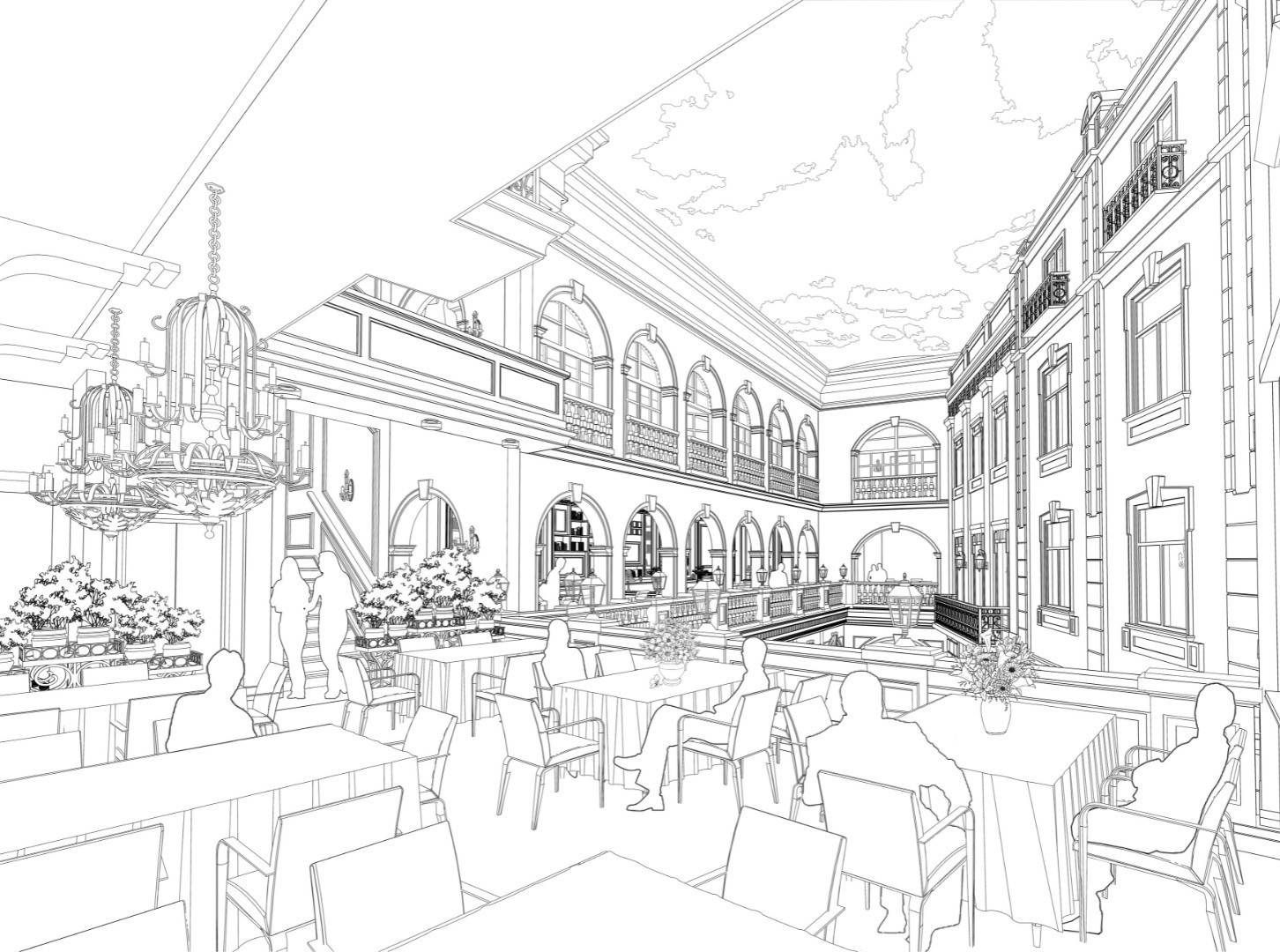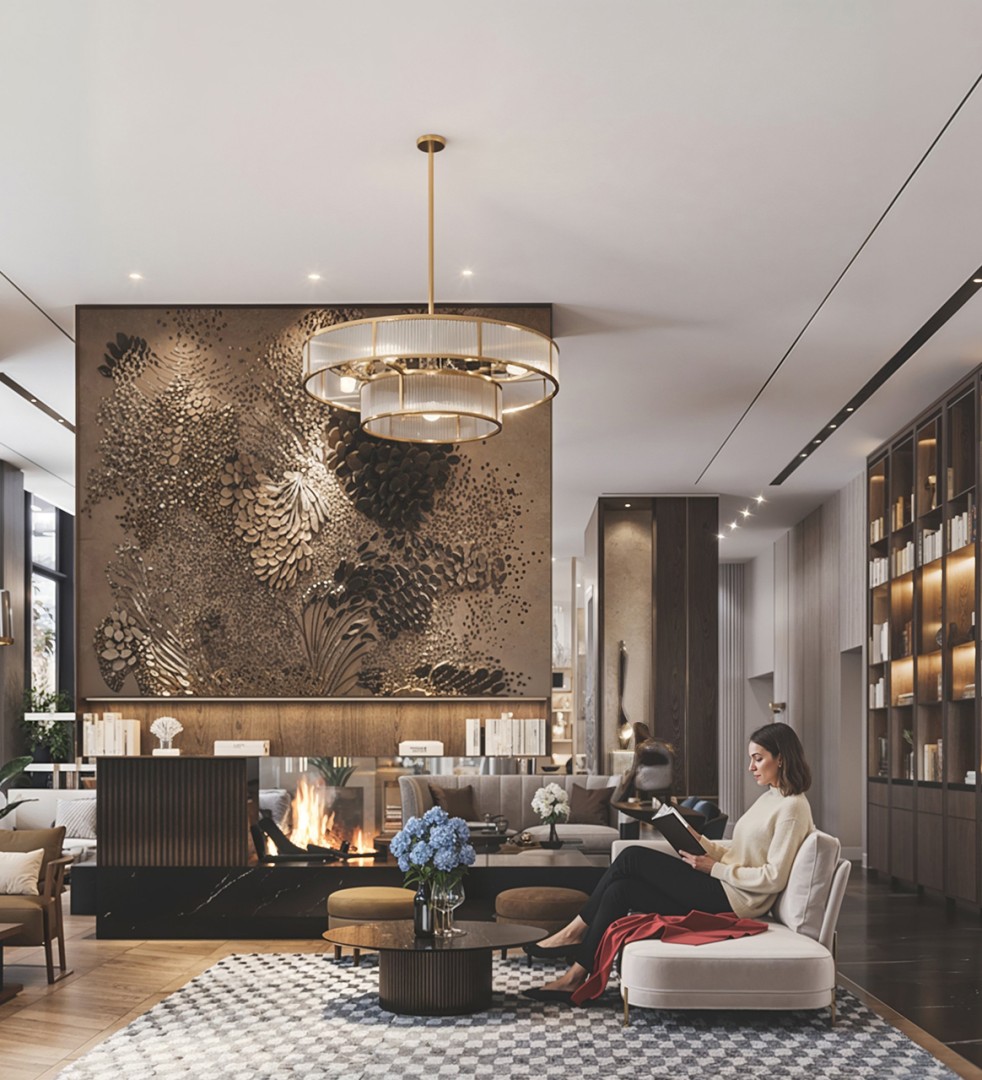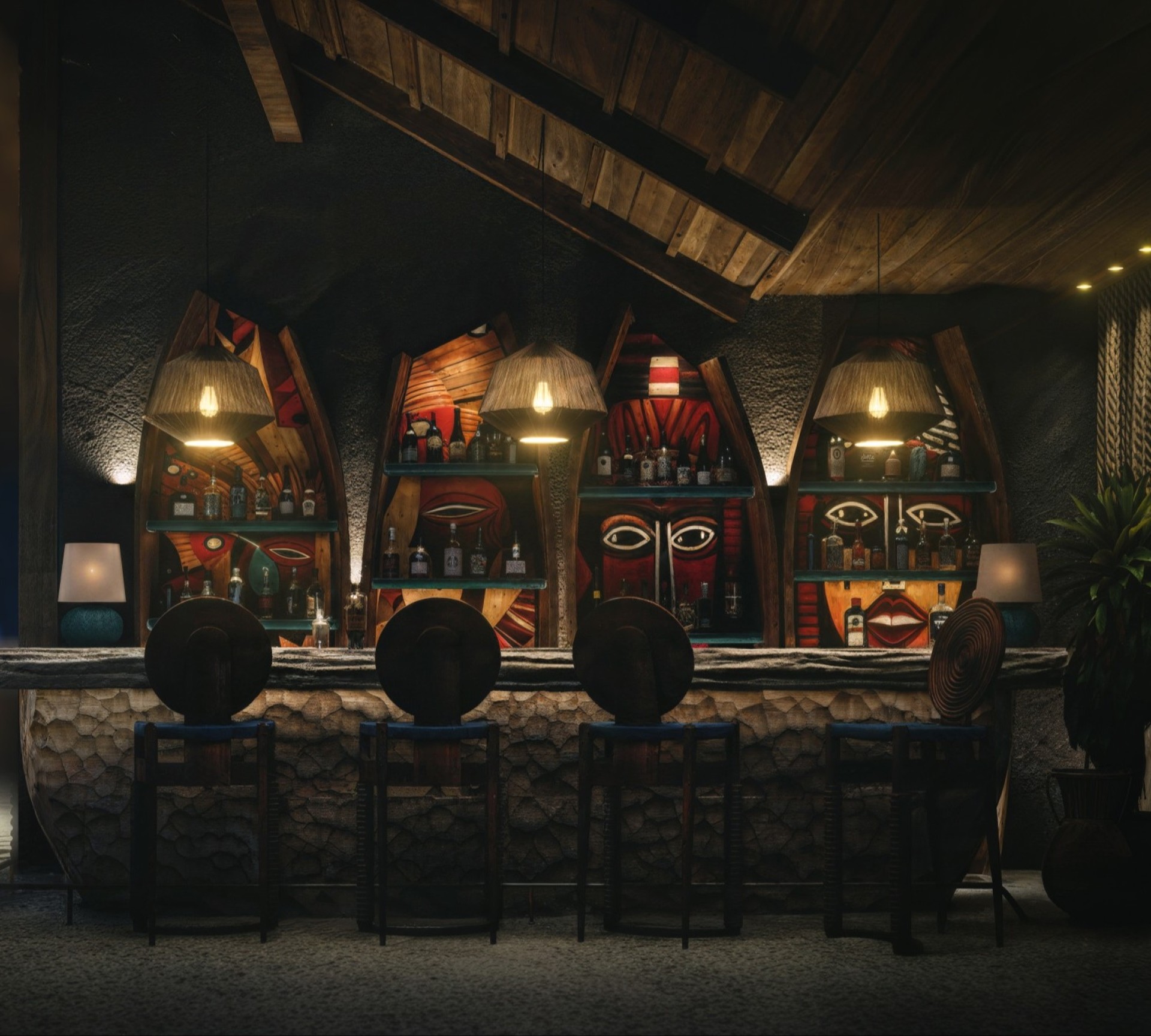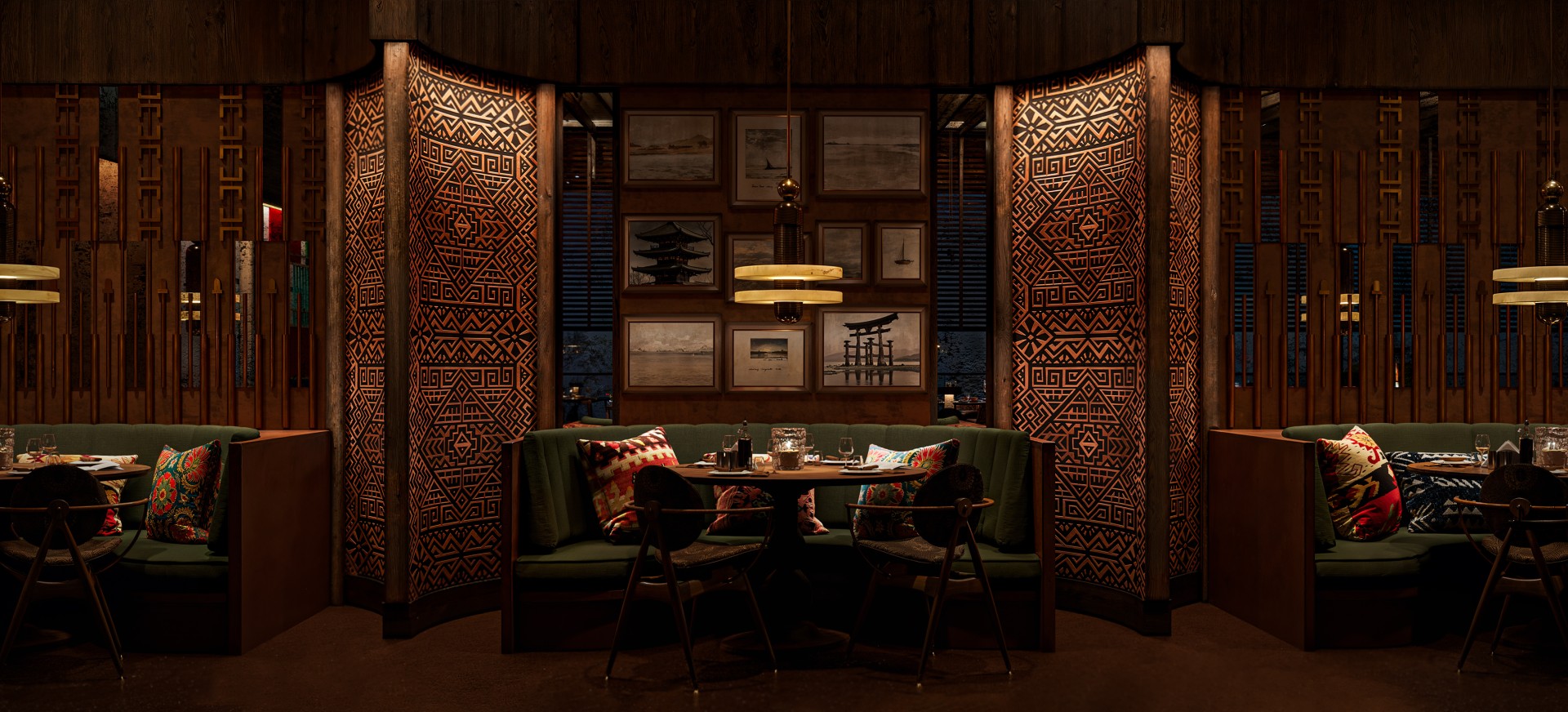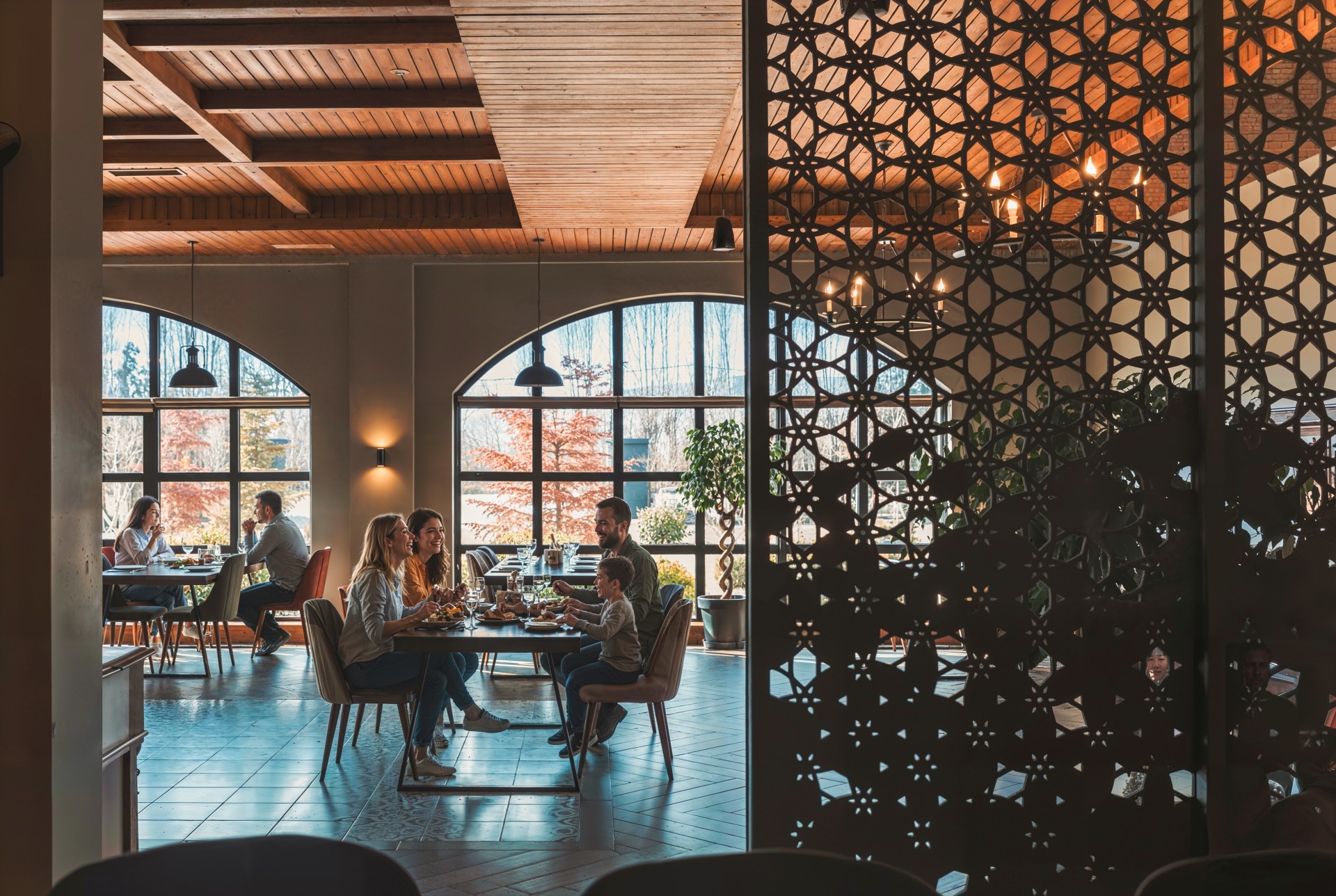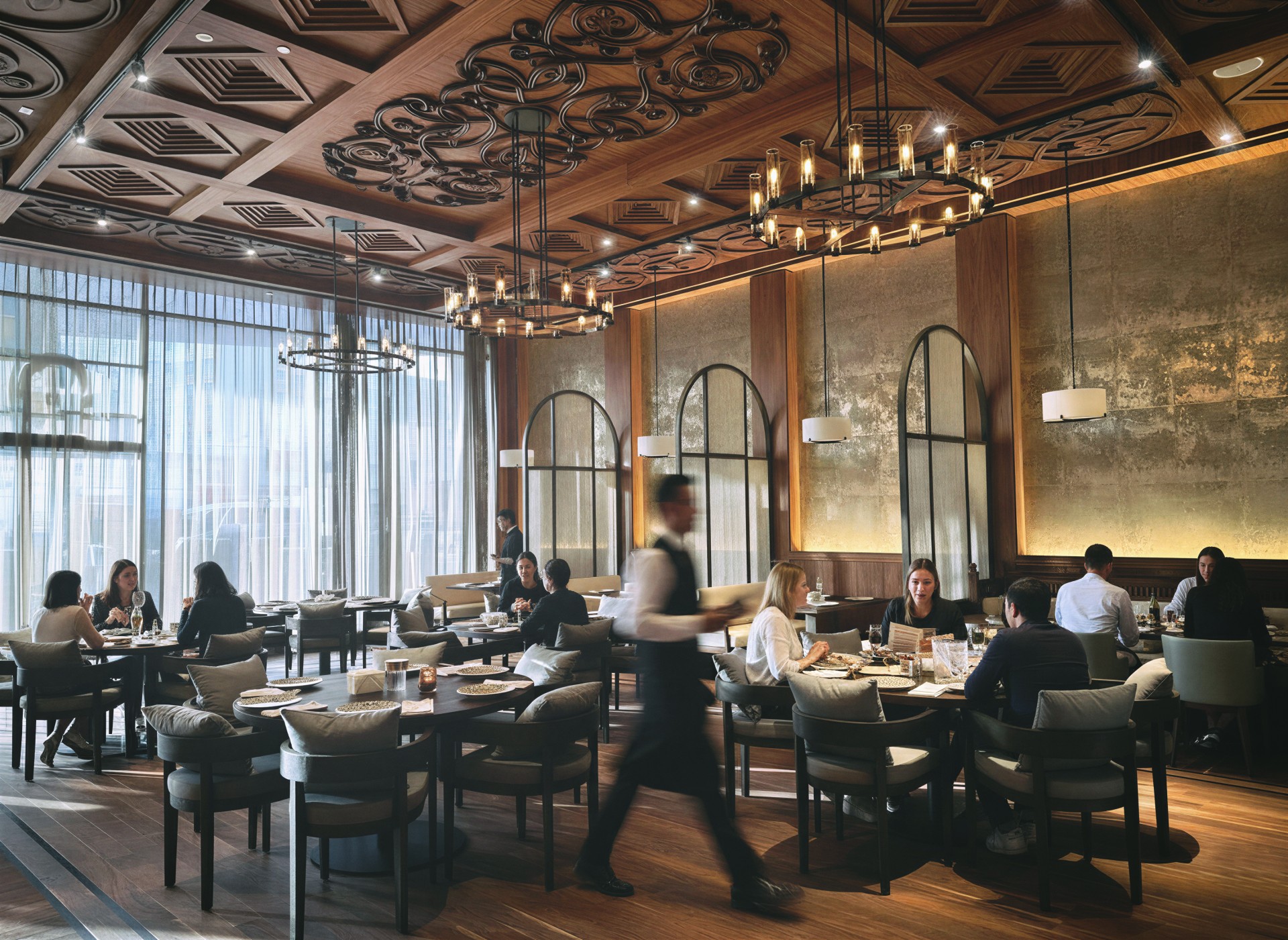Restaurant Architecture: Kalaki
Spectrum has extensive experience in restaurant architecture. Restaurant Kalaki is the first Michelin-rated fine dining restaurant operating in Tbilisi, Georgia. Located in one of the oldest neighborhoods in Tbilisi with diverse architectural styles and historical layers superimposing over 150 years of history, the restaurant architecture was carefully thought and detailed for the contextual setting. It's quest was to create a classical and sophisticated environment within the texture of the old town.
The Concept
The fundamental design and concept of the project surpass the typical designation of a luxurious restaurant and its main function. It offers an unparalleled meeting space where people socialize in a magical atmosphere, which lets them escape from hectic city life. The
name of the restaurant – Kalaki, in Georgian means “city.” The idea of space is to create a city within a city with a timeless atmosphere that enables visitors to travel through space, in history and culture, and interpret the reality in different lenses. The city inside the city, where time is insignificant, is a place where you can enjoy the magical atmosphere completely distracted from stressful urban routine. It’s the story told through classic materials, lighting, and historical context, which is purposefully imitated in the interior.
Unique Features and Design Elements
Sol Omnia Lucet – the Latin caption at the entrance, translates into ''the sun shines for all'' it sums up the main idea of the project – a restaurant where everybody finds their own individual space to experience time.
The entire concept of the restaurant and fine dining revolves around the main atrium, the heart of the project, which resembles the typical inner yard of old Tbilisi, residential neighborhoods where inhabitants meet and socialize. This unique feature adds another layer to the restaurant architecture that makes Kalaki truly stand out.
Different Spaces
Different dining halls are connected via the inner courtyard and offer various dining experiences for diverse settings and functional gatherings. These planning principles encourage visitors to move around during the evening and explore the space from different perspectives, offering spaces from romantic getaways to casual outdoor seating. This layout enables visitors to experience a continuous sense of exploration and excitement at every visit which is one of the main purposes of restaurant architecture.
A 100-year-old pine right at the entrance of the building was purposefully maintained to enjoy the natural conditions offered by the location. Now, this pine adds a green glow to the facade of the restaurant. The atrium, artificial sky, and outdoor facades are used indoors to add a certain theatrical nature to the space, giving visitors the feeling of being part of a performance. This aspect of
restaurant architecture is especially notable, merging natural elements with designed spaces.
A Memorable Dining Experience
From its food and drinks to the furniture design, this place is designed to awaken feelings. The restaurant architecture offers luxurious European settings and styles with local traditions. Various stories will be born in such a space, we believe. We aimed to create a place in which the meaning of the place would be misinterpreted, yet the place would accept various interpretations of visitors.
